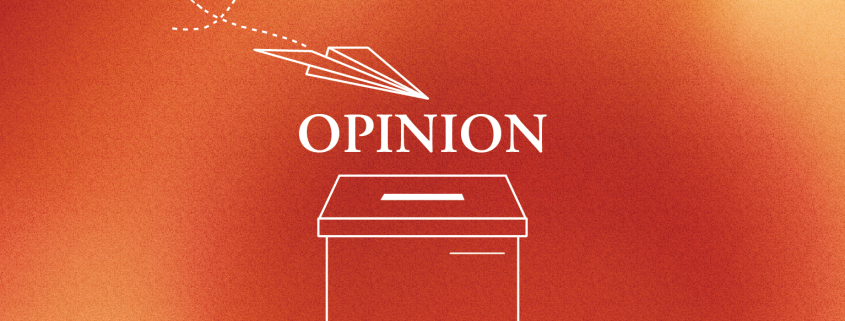What’s in an ethnic name?
I’m in Paris, I’m on TikTok making salmon bowls, I’m walking red carpets for movie premieres.
My name has had a chokehold on society. “Emily” remained in the top 10 baby girl names in America from 1991 to 2016, including the name’s 10-year reign at the top of the list from 1996 to 2007. In short, the sheer amount of us makes being an “Emily” is a big deal.
I understand why my parents named me “Emily.” Teachers and classmates never butchered my name in school. On vacation, I always found “Emily” on name tag souvenirs located in random tourist shops. Giving me a familiar, American name was the most beneficial choice my parents made for my future. Studies have proven that “white” names are less likely to be rejected from job opportunities through resume screenings and be in higher-paying occupations.
A name can even determine your chance of survival. A study developed at the University of Toronto used the trolley scenario — “a thought experiment in ethics about a fictional scenario in which an onlooker has the choice to save 5 people in danger of being hit by a trolley, by diverting the trolley to kill just 1 person,” according to Merriam-Webster — with certain identities and names. The researchers found that most of the 850 white participants would redirect the train to strike Xian (78%), compared to white Mark and Asian Mark (approximately 68% and 70%, respectively).
With a name like Emily, I’m bound to survive in the world with my name always in the media somehow. However, as a Cambodian American, that amount of representation is almost non-existent. I appreciate the ease growing up as “Emily,” but I always ponder on who else I could’ve been. These two components comprising my identity contradict how I view myself culturally.
Emily represents the American side of me, but what part of my name represents my Cambodian heritage?
Immigrants often honor their cultural heritage while assimilating to the dominant culture by having an ethnic middle name, which is also a form of inheritance. Middle names allow families to experiment and create new traditions while preserving old ones. My immigrant parents gave me my middle name, Davy (pronounced dah-vee), to keep a part of our culture alive. So, as much as “Emily” has defined who I am, there are days where I wish my middle name, Davy, would get a little more attention and appreciation. “Emily” comes with perks, but not having an ethnic name has made me feel detached from my family and their cultural heritage.
College has only furthered my cultural disconnection. The main opportunity and practice I get speaking my mother tongue is with my mom — that is, whenever I do have the time to pick up her calls. There are limited ways in college that allow me access to reconnect with my Khmer heritage. There are little to no Khmer restaurants in Los Angeles to indulge in Cambodian food or classes or clubs at USC that provide me an opportunity to learn more about my culture. Even when attempting to connect with my identity in APIDA-created spaces on campus, I can’t say I feel “at home.”
Don’t get me wrong: I enjoy surrounding myself with other APIDA individuals, but it’s been extremely difficult to feel accurately represented through umbrella terms like APIDA that cover people from a multitude of regions, languages and cultures. This feeling extends beyond the APIDA community. Students of broad ethnic and cultural groups — Latine and Middle Eastern to name a few — are constantly grouped together despite major cultural and regional differences that set people apart. I shouldn’t need to compromise my identity to feel like I belong.
It’s times like Cambodian New Year’s — celebrated from April 14 to April 16 this year — when I regret not appreciating home enough and going to great lengths to avoid visiting temples when I was younger. I regret being too stubborn to learn how to read and write in Khmer, my mother language. I regret never correcting teachers on how to accurately pronounce my last name.
The underrepresentation of Cambodians in Western spaces is unavoidable, especially at large institutions like private universities. However, I finally understand that home is a feeling, rather than a place. Now, I’m trying to replicate home to the greatest extent possible while correcting the negligence my younger self had toward preserving her cultural identity.

